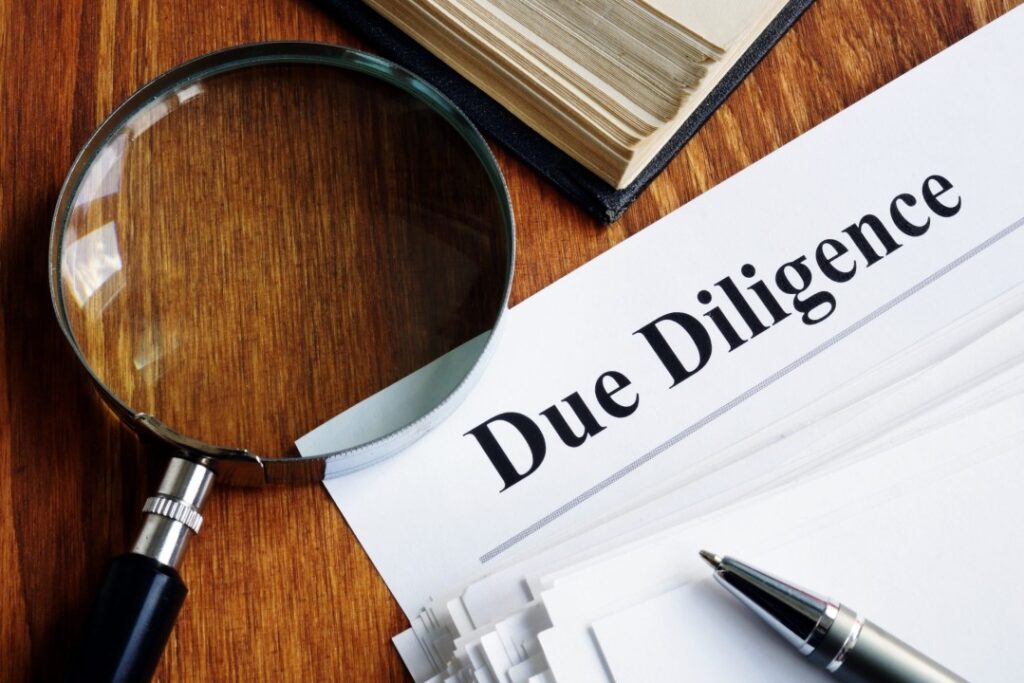
Understanding Due Diligence in Commercial Real Estate
In commercial real estate transactions, due diligence is a crucial phase that can significantly influence the success or failure of an investment. It represents a comprehensive investigation or audit of a property to evaluate its potential risks, benefits, and overall feasibility before finalizing a purchase or entering into any contractual agreements. Due diligence is about conducting thorough research and analysis to ensure informed decision-making.
Why is Due Diligence Important?
- Risk Mitigation: Commercial real estate transactions involve substantial financial commitments. Due diligence helps identify potential risks associated with the property, such as environmental issues, legal disputes, zoning regulations, or structural deficiencies. Uncovering these risks early on allows investors to assess whether they can be mitigated or if the investment aligns with their risk tolerance.
- Financial Evaluation: Proper due diligence involves a detailed property financial analysis. This includes reviewing income and expense statements, rent rolls, lease agreements, and projected cash flows. By verifying financial data, investors can determine the property’s income-generating potential and whether it aligns with their financial goals.
- Legal Compliance: Legal compliance is crucial in commercial real estate. Due diligence involves reviewing titles, surveys, permits, and any existing legal agreements related to the property. This helps understand any legal obligations or potential liabilities associated with the property, ensure compliance with local regulations, and avoid future legal disputes.
- Physical Inspection: Physical inspections are fundamental to due diligence. They involve assessing the property’s condition, infrastructure, and systems (such as HVAC, plumbing, and electrical). Identifying any necessary repairs or maintenance issues early on allows investors to estimate potential renovation costs and factor them into their financial projections.
- Market Analysis: Evaluating the property within its market context is essential. This includes analyzing comparable properties, vacancy rates, rental trends, and the area’s economic indicators. Understanding market dynamics helps investors assess the property’s competitive position and potential for future appreciation
The Due Diligence Process
The due diligence process typically involves several key steps:
- Document Review: Gathering and reviewing all relevant documents related to the property, including financial records, contracts, permits, and legal agreements.
- Physical Inspection: Conducting a thorough inspection of the property, often with the assistance of professionals such as inspectors, engineers, and appraisers.
- Environmental Assessment involves assessing potential environmental risks and liabilities associated with the property, such as contamination or hazardous materials.
- Financial Analysis: Reviewing financial statements, rent rolls, and lease agreements and conducting financial modeling to evaluate the property’s economic performance.
- Legal Review: Verifying title insurance, surveys, zoning laws, and any legal restrictions or obligations affecting the property.
In commercial real estate, conducting due diligence is essential for making well-informed investment decisions. It entails thorough research and analysis to identify risks, assess financial viability, ensure legal compliance, and carry out comprehensive inspections. Engaging a reliable and knowledgeable Commercial Real Estate Brokerage is imperative.
At DH Realty Partners, we are experienced commercial real estate professionals, and our team will expertly guide you through every step of the process!

Brent Saxon
Associate | Greater Austin
512.507.8374
[email protected]
